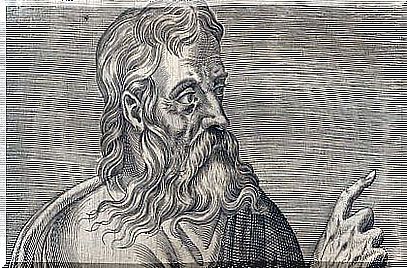7 Great Quotes From Seneca

You have probably heard of the Roman philosopher Seneca, but maybe you haven’t read any of his writings? Anyway, you can enjoy our article about those great quotes from Seneca that have survived time because they are true pearls of wisdom. How could it be otherwise with one of the most famous men of the Roman Empire, whose writings greatly influenced his contemporaries.
The climax of Seneca’s phrases is always her ethical message. Almost all of his writings, and indeed his life itself, are models of morality. He belonged to the philosophical school of stoicism, which advocated moderation in times when excesses were the order of the day. The impressive intelligence and the ability to speak of this great thinker has therefore also provoked many conspiracies against him and also jealousy.
“If you submit to nature, you will never be poor; if you submit to the opinion, you will never be rich. “
Seneca
Here are just a few of those Seneca quotes he left for posterity.
1. To dare or not to dare
One of Seneca’s most famous phrases says: “Not because it is inaccessible, we do not dare, but because we do not dare, it is inaccessible.” This is a sensitive reflection that is all the more impressive when you consider that it has been valid for several millennia.

Seneca’s message here is that things can be much more complicated in our heads than in reality itself. He understood that people tend to turn a mosquito into an elephant because of fear.
2. Of waves and surfers
This is without a doubt one of the most beautiful sentences that Seneca has written: “Why complain about the sea when you are riding its waves again?” In this short quote we can see his poetic ability, sensitivity and realism.
The saying refers to the fact that we have no reason to complain about what we use for ourselves, yes, we are actively looking for it. He also points out that the first time might be excusable, but that if we do the same again, that no longer applies. In our lives, too, there are countless examples of motivations, activities and arguments that we criticize in others, but use ourselves.
3. Hidden and open hatred
If Seneca knew anything about one thing, it was hatred. He was never a man of conspiracy and yet his intelligence and agility aroused suspicion, envy and caution.

Perhaps that’s why one of Seneca’s quotes is, “Hidden hatred is worse than open hatred.” It is very likely that we have all experienced this truth at some point. Often the bitterest hatred is not the visible one.
4. The value of trouble
As a good stoic, Seneca placed great emphasis on difficulty. He did not attribute any negative meaning to them, nor did he avoid them. But on the contrary. He argued that problems are a source of growth and progress.
This is beautifully recorded in the following quote: “Difficulties strengthen the mind, like working with the body.” In other words, Seneca sees difficulty as an opportunity to train and develop the ability to think.
5. Dealing with anger
Here is another one of those phrases that amazes us with its simplicity and depth: “The best cure for anger is reprieve.” Time provides a perfect solution for us to deal with anger. It is a simple and extremely effective formula for those who put it into practice. Because it is a practice that never fails.
In most cases, anger is easy to control with a little pause. Just stay calm and serene for a few minutes. The calm returns and so we don’t have to say things that we will regret in the future.
6. The bravery of life
Seneca’s life was certainly no walk in the park. Especially not during the reign of Caligula, who cruelly persecuted him out of jealousy. The same thing happened to Nero, a student of his, who eventually sentenced him to death.
In addition, Seneca has always suffered from poor health, especially asthma attacks. Perhaps because of all of this, one of his sentences that has gone down in history goes as follows: “Sometimes even life is an act of bravery.”
7. The logic of good habits
Seneca made a very wise and sensitive statement about good habits here. He said the following: “Good habits are complementary and so they last.” As is so often the case, in this short sentence he sums up a world of wisdom.
What he addresses is that good habits are not isolated realities. A good habit doesn’t survive amid multiple negative habits. Stability requires consistency and coherence.

There are hundreds of Seneca quotes and all of them are equally exceptional. It is not surprising that his thoughts broke the barriers of time, and that they are absolutely valid for the times in which we now live.









